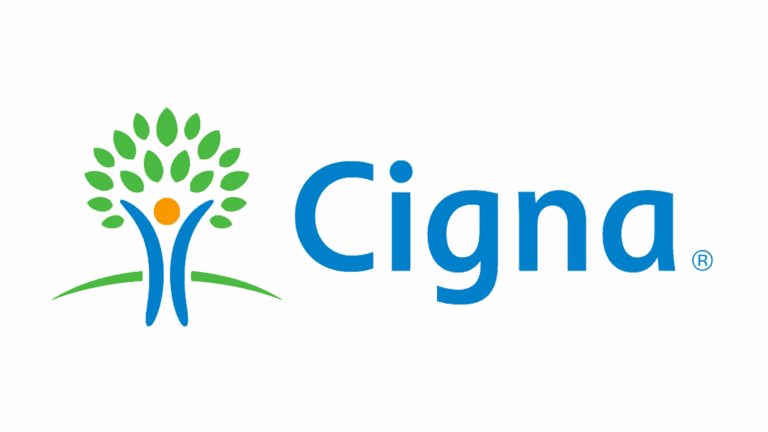About 14.5 million people ages 12 and older had alcohol use disorder (AUD) as of 2019. Only 7.2% of people who have AUD receive treatment. About 95,000 die due to alcohol-related causes every year as a result.
Alcohol contributes to about 18% of emergency department visits every year, too.
You don’t have to wait until you end up in an emergency room to seek treatment. Instead, consider seeking professional help. Otherwise, it’s important to avoid completing an alcohol detox at home.
Here are a few dangers you might experience if you try detoxing from alcohol at home alone. Understanding the potential risks can help you recognize why seeking professional help is essential. Read on to learn more.
The Detox Process
Before we dive into the potential dangers of detoxing from alcohol at home, it helps to understand the detox process.
Alcohol and other substances activate gamma-aminobutyric acid (GABA) receptors. GABA is one of the most important chemicals found in the brain. This neurotransmitter is highly involved in neuron signaling.
Neurons fire less often when more GABA is present.
When there’s less GABA, neurons fire faster. Neurotransmitters like serotonin and dopamine could get absorbed faster, too.
Alcohol can act on receptors and mimic GABA. It’s able to slow down the brain’s processing abilities as a result. As processes slow, alcohol is able to cause reactions such as:
- Intoxication
- Slurred speech
- Slowed reaction times
- Delayed thinking
- Sleepiness
- Weakness
When you become dependent on alcohol or other substances, your brain won’t produce enough GABA. The brain can struggle to regulate neurons, leading to withdrawal symptoms.
Some people feel like they need to drink alcohol to feel normal, to sleep, or to ease their anxiety. Consuming even more alcohol could have dangerous consequences on the body and mind, though.
Alcohol detox helps the brain relearn how to produce GABA without alcohol.
It’s important not to complete an alcohol detox at home, though. Instead, seek medical supervision at an inpatient detox facility. Medical professionals can help manage your withdrawal symptoms or delirium tremens.
Otherwise, detoxing could have lasting harm on the body. It could even lead to death.
Withdrawal Symptoms
Alcohol withdrawal syndrome (AWS) occurs when a heavy drinker suddenly stops or reduces their alcohol intake. You could experience emotional and physical symptoms. In severe cases, however, you could experience hallucinations and seizures.
You shouldn’t complete an alcohol detox at home alone. If you experience seizures or other intense side effects, AWS could become light-threatening.
You could experience symptoms of AWS anywhere between six hours to a few days after your last drink. These symptoms might include:
- Nausea
- Anxiety
- Tremors
- Vomiting
- Headache
- Sweating
- Increased heart rate
- Nightmares
- High blood pressure
- Insomnia
- Confusion
- Irritability
Your symptoms might get worse over the next few days. For some people, mild symptoms can persist for a few weeks. You might notice these symptoms more when you first wake up.
Delirium Tremens
About 5% of people in alcohol withdrawal experience delirium tremens (DTs). The DTs can start two or three days after you stop a long drinking binge. Symptoms can last for about three days, but symptoms could last as long as a week.
These symptoms could include:
- Chest pain
- Confusion
- Dehydration
- Tremors in the hands and feet
- Deep sleep that lasts for a day or longer
- Hallucinations
- Getting startled more easily
- Nightmares
- Nausea or vomiting
- High blood pressure
- Heavy sweating
- Getting startled easily
- Fever
- Anger
- Excitability
- Pale skin
- Severe hyperactivity
- Sleepiness or fatigue
- Sensitivity to light, sound, or touch
- Seizures
- Rapid heartbeat
- Problems with eye muscles and movement
- Passing out
You might experience changes to your blood circulation, breathing, and body temperature, too. These changes could lead to life-threatening complications. For example, you might experience:
- Sepsis
- Trouble breathing
- Seizures
- An electrolyte imbalance
- Irregular heartbeat
If left untreated, delirium tremens could lead to stroke, heart attack, or even death.
If you or a loved one experiences delirium tremens, don’t wait to seek help. Call 911 right away.
You can avoid the dangers of detoxing from alcohol at home by seeking professional help.
Seeking Help
Completing an alcohol detox at home could cause dangerous side effects. You don’t have to risk your health or well-being. Instead, consider visiting a licensed treatment facility.
A doctor can review your medical history. They’ll ask about your symptoms before completing a physical exam, too. Your doctor might perform a toxicology screen to determine how much alcohol is in your body as well.
Your doctors can complete medical testing to determine how much damage alcohol has caused your body. An unhealthy diet could cause a vitamin deficiency, too. Common deficiencies include vitamin B6, folate, vitamin A, and thiamine.
If you experience delirium tremens, your medical team might suggest benzodiazepines. Other treatment options include:
- Blood pressure medications
- Anticonvulsants to stop seizures
- Antipsychotic drugs to help you remain calm and prevent hallucinations
- Pain medications
- Medications to regulate your heartbeat
Professional care will stabilize your health. You can detox safely before seeking treatment for alcohol dependence. Otherwise, you could relapse, sending your body through this process all over again.
It’s important to seek professional help right away. Otherwise, an advanced form of AWS could prove fatal. The sooner you start treatment, the more likely you can avoid life-threatening complications.
For example, DTs could cause changes to your physical and mental function. You could experience fear, mood swings, or stupor, too.
Other complications associated with DTs include over-sedation, which could lead to a coma. You might experience cardiac arrhythmias, respiratory arrest, or pneumonia, too.
Brain, lung, liver, and heart damage are all associated with consuming too much alcohol or stopping cold turkey as well.
Detoxing from alcohol at home isn’t safe. Instead, consider finding an inpatient treatment center. You can overcome your physical alcohol dependence and remain safe throughout the process.
Detoxing Safely: The Dangers of Alcohol Detox at Home
Don’t complete an alcohol detox at home. Otherwise, you could experience lasting physical and mental damage. Instead, consider finding an inpatient treatment facility.
A professional medical team can ensure you detox and heal safely. Then, you can get the help you need to remain on the road to recovery.
Ready to begin your alcohol detox with a team you can trust? We’re here to help.Contact us today to get started.








